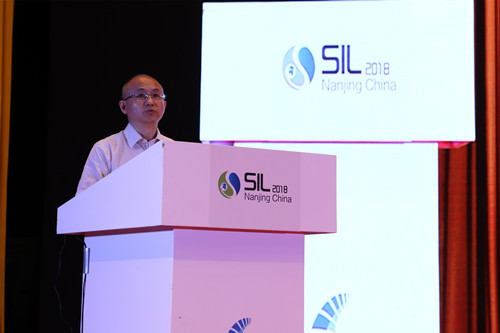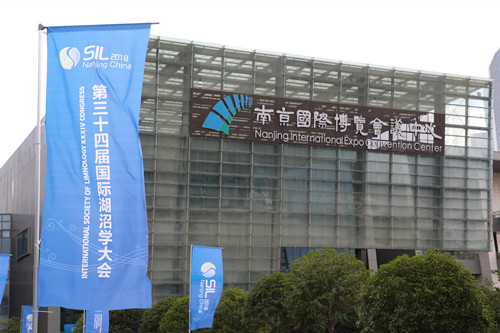From August 19 to 24, the 34th Congress of International Society of Limnology (SIL) was successfully held at Nanjing International Expo Center. This is the first time the SIL Congress has come to China, and the second time the event has taken place in Asia after the 11th Congress in Kyoto, Japan.
The congress was sponsored by SIL, and was organized by Nanjing Institute of Geography and Limnology, CAS (NIGLAS) and the Soil Science Society of China. CAS Vice President ZHANG Yaping, NIGLAS Director SHEN Ji and SIL Chairman Yves Prairie attended the opening ceremony. Nearly 700 scientists registered for the congress.
The theme of SIL 2018 is “Limnology, a Science for the Preservation and Restoration of Aquatic Ecosystems”. The theme is identified because freshwater ecosystems are increasingly threatened by human activity and the effects of climate change. The global response to these challenges has been mixed. In the developed world, the issue of eutrophication of inland waters has been a matter of intense focus and some remarkable counter measures, whilst in developing countries the situation has continued to worsen, as seen in the increasingly frequent and severe cyanobacterial blooms in Lake Taihu, China.
The SIL was founded in 1922 to promote the study of inland waters including lakes, streams, rivers and ground waters. As a highly integrative science with elements of physics, chemistry and biology, ecology, hydrology and geology, limnology is charged with developing a holistic understanding of freshwater ecosystems in order to inform responsible future management.
The SIL Congress is the most important international gathering focused on inland waters, and serves to promote scientific exchange between practitioners pursuing purely theoretical research and those interested in practical ecosystem problems, such as biodiversity, eutrophication, water supply, fisheries management and ecosystem restoration. The event brings together scientists from many disciplines with managers and engineers seeking a sound basis for ecosystem management and restoration or solutions for other problems of inland waters. The congress provides valuable opportunities for scientists from around the world to share new research, ideas and solutions, to establish international collaborations, and to forge new friendships and renew old ones.



